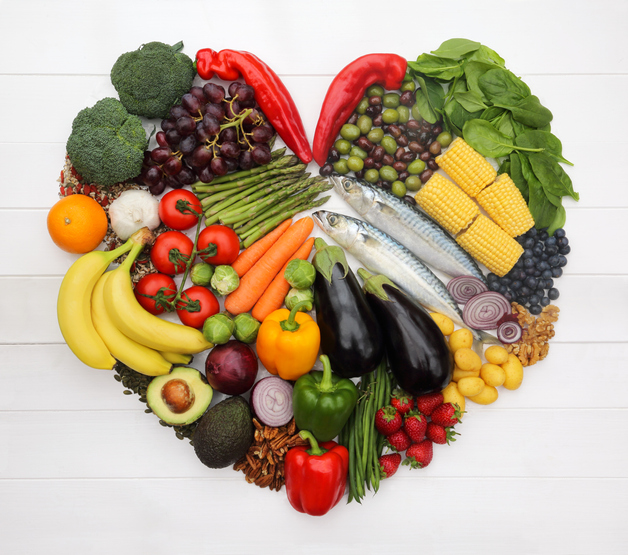A Simple Eating Guide To Preventing Heart Disease

By Joy Stephenson-Laws, J.D., Founder
If I sound like a broken record, I’m sorry. It is, however, always worth mentioning that heart disease is the leading killer of both American men and women. Until this fact changes, I honestly do not think that I can discuss heart disease prevention enough.
To give you a bit more perspective:
- Almost half of all adult Americans have some form of cardiovascular disease (according to recent data from the American Heart Association (AHA)).
- One person dies every 36 seconds in the United States due to cardiovascular disease (Centers for Disease Control and Prevention (CDC)).
- In the U.S., someone has a heart attack every 40 seconds (CDC).
- People who are at a higher risk of developing cardiovascular disease appear to also have a higher risk of having increased cognitive decline (check out this pH Labs blog to learn more).
What gives me the best perspective on this very serious issue is that one study from the
European Society of Cardiology (ESC) found evidence which suggested that a poor diet is the leading contributor to heart disease deaths globally. The report states that more than two-thirds of deaths from heart disease worldwide could be prevented by adopting healthier diets.
This is great to know, because it gives us control and the power to do something about it. With that said, I know it can be overwhelming or perhaps intimidating to figure out what you should and should not eat.
Fortunately, the European Society of Cardiology recently formulated some guidance on how you can eat in order to help prevent heart disease. It is simple and straightforward. In a nutshell, plant-based foods (such as fresh fruits and vegetables) should dominate our daily meals.

Many Americans tend to think of these foods as side dishes when in reality they should take up the most room on the plate. I like to eat a big salad for lunch with as many colorful veggies as possible (such as bell peppers, beets and carrots) with a little bit of protein such as salmon or shrimp. For dinner, I like to have two vegetables (maybe broccoli and squash) and then if I have meat, the serving is no larger than the size of a small deck of cards.
"There is no indication that any food is poison in terms of cardiovascular risk. It's a matter of quantity and frequency of consumption," said lead researcher Professor Gabriele Riccardi, according to this Medical Xpress report.
"A mistake we made in the past was to consider one dietary component the enemy and the only thing we had to change. Instead, we need to look at diets as a whole and if we reduce the amount of one food, it is important to choose a healthy replacement."
In my opinion, this makes healthy eating more doable. It is less about sacrifice and elimination. It focuses on moderation with foods that may not be the best for us.
“Overall, there is consistent evidence that for healthy adults, low consumption of salt and foods of animal origin, and increased intake of plant-based foods—including whole grains, fruits, vegetables, legumes and nuts—are linked with reduced risk of atherosclerosis. The same applies to replacing butter and other animal fats with non-tropical vegetable fats such as olive oil,” states Medical Xpress.
Here is where it gets a bit more specific:
- Red meat (which includes beef, lamb and pork (according to this particular source)) should be limited to two servings of 100 grams per week.
- Poultry can be consumed up to three servings of 100 grams per week.
- Processed meats such as bacon, salami and sausage should be eaten only occasionally (I say avoid entirely if possible).
- If you do not eat red meat, it is recommended to replace with legumes (up to four servings of 180 grams per week)
- For fish eaters, two to four servings of 150 grams per week.
“As for fruits and vegetables, given their strong association with a lower risk of atherosclerosis, daily consumption should be increased to as much as 400 g for each. Regarding nuts, a handful (around 30 g) per day is recommended,” reports Medical Xpress.
What about dairy?If you are healthy and do not have any existing heart disease, the report says that you can eat either low-fat or high-fat dairy.
"Small quantities of cheese (three servings of 50 g per week) and regular yogurt consumption (200 g per day) are even linked with a protective effect due to the fact that they are fermented," said Professor Riccardi.
“We now understand that gut bacteria play a major role in influencing cardiovascular risk. Fermented dairy products contain good bacteria which promote health."
White bread and white rice are associated with a higher risk of developing heart disease (limit to two servings per week), but go for brown rice and whole grain foods. High glycemic index foods (which may contribute to the development of type 2 diabetes and, therefore, heart disease) such as sugary cereals and sweets should be eaten in moderation (no more than two servings per week) if at all.
Good news for coffee and tea lovers.
Consuming up to three cups of coffee or tea a day was associated with a lower risk of developing heart disease. This, of course, is coffee and tea sans added sugar and processed creams. I recommend going for green tea. Consuming three cups of coffee per day is a lot, especially if you are like me and are a slow caffeine metabolizer.
And as always, drink alcohol in moderation (if at all). Avoid smoking at all costs and make sure to move regularly. Finally, be sure to take routine nutrient tests in order to determine if you are not nutritionally balanced. Having adequate amounts of certain nutrients, such as magnesium, is important when it comes to preventing and managing heart disease. If the test determines you are not nutritionally balanced, a competent healthcare professional can work with you on making the necessary dietary changes and recommend quality supplements if necessary.
Enjoy your healthy life!
Disclaimer: This article is not intended to provide medical advice. Please consult with your doctor or another competent healthcare practitioner to get specific medical advice for your situation.
The pH professional health care team includes recognized experts from a variety of health care and related disciplines, including physicians, attorneys, nutritionists, nurses and certified fitness instructors. This team also includes the members of the pH Medical Advisory Board, which constantly monitors all pH programs, products and services. To learn more about the pH Medical Advisory Board, click here.







